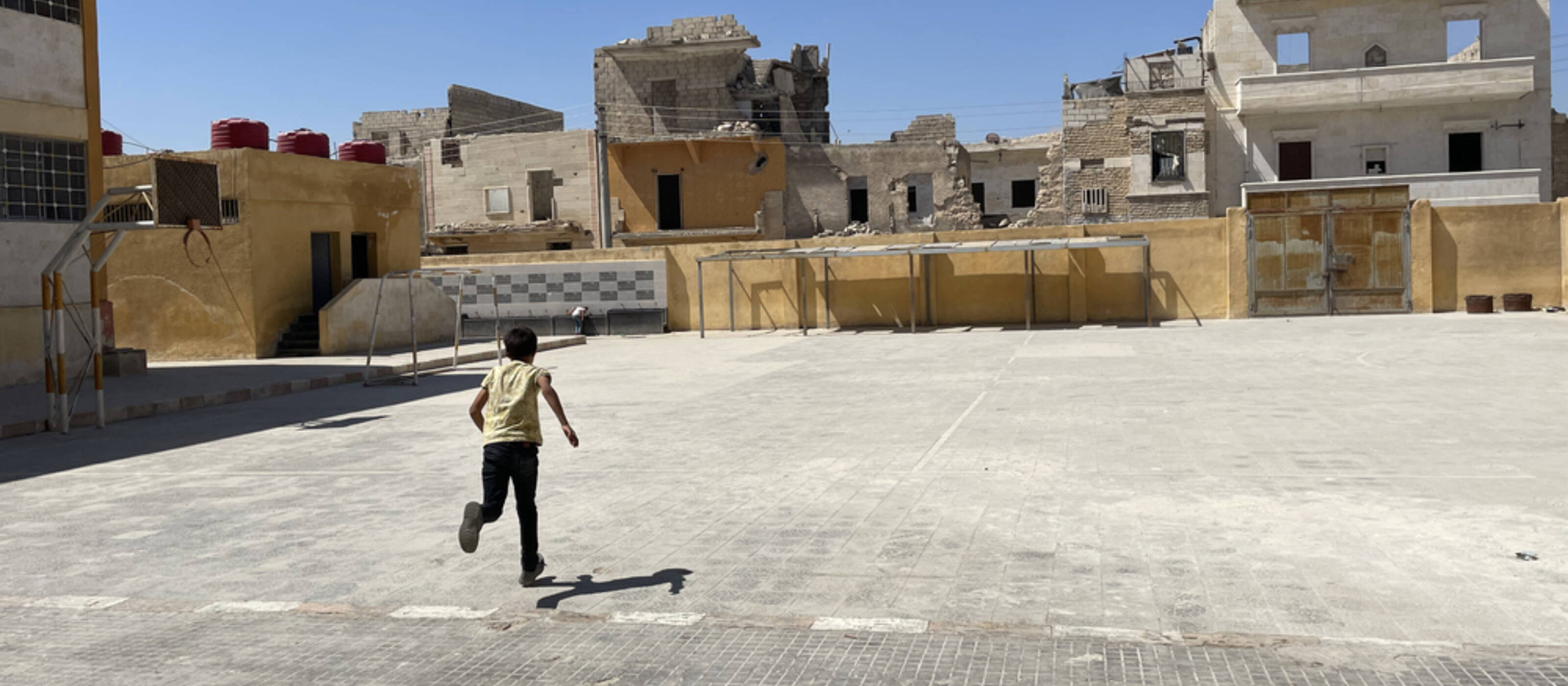

One year after the earthquake, the need is still great
The earthquake on 6 February 2023 hit a region in northern Syria that had already been suffering from the consequences of the war for years. The natural disaster has exacerbated the suffering: 95 per cent of people now live in poverty. The quake also presented aid organisations such as Caritas Switzerland with unexpected challenges.
Measuring 7,8 on the Richter scale, the earthquake struck the border area between Syria and Turkey in the early hours of 6 February 2023. In Syria alone, 6'392 people lost their lives and 11'829 were injured. Countless houses were destroyed or so badly damaged that over 170,000 people were left without a roof over their heads in one fell swoop. This was in temperatures around freezing point.
Today, one year after the devastating natural disaster, the situation in Syria is still disastrous. Entire villages and neighbourhoods lie in ruins, and it is almost impossible for outsiders to distinguish between the destruction caused by the earthquake and that caused by the war that has been raging since 2011.
Poverty was already rampant among the population before the earthquake and unemployment was high. The quake made the situation even worse. A study by the UN's International Labour Organization based in Geneva shows that around 95 per cent of those surveyed were suffering from poverty in August 2023. Over half of households had an income of less than 30 dollars a month.
«People are struggling to survive on a daily basis,» confirms Martin Hiltbrunner, programme manager for the Syrian crisis at Caritas Switzerland. A large proportion of the population ekes out a living with odd jobs. The situation is particularly serious for children, as they often have to contribute to the household income and work. Many girls are also married off at an early age. «We are seeing various signs of a lack of hope and prospects,» says Hiltbrunner.
«The earthquake is a crisis within a crisis - many people can no longer bear this additional burden.»Martin HiltbrunnerProgramme Manager Syria Crisis Response at Caritas Switzerland
Difficult framework conditions for assistance
There are many reasons why the humanitarian need is still so great one year after the earthquake. The economy in Syria is largely idle and some of the public infrastructure is in a desolate state. Heating oil, for example, is rationed. A family receives a maximum of 50 litres per winter. This already inadequate quantity is never available to many households due to the limited availability at the distribution centres, which causes additional suffering for the population.
The soaring inflation rate is also affecting people and posing challenges for international aid organisations. Caritas is experiencing this, for example, in the renovation of school buildings and residential buildings: construction companies are finding it very difficult to provide reliable quotes because the Syrian lira is depreciating sharply and the prices originally calculated for materials and wages are no longer viable. Despite the difficulty in planning, Caritas Switzerland is now focussing on more long-term support that is intended to be sustainable. A new project is starting at various levels: Particularly vulnerable people are being trained to open their own small business, such as a kiosk or a sewing workshop. At the same time, they receive start-up capital until their business is stable enough to make a profit. They are closely supported by mentors throughout the entire process.
«With long-term projects that are well tailored to the needs, we can succeed in combating poverty in Syria step by step. We want to give people a perspective again.»Martin HiltbrunnerProgramme Manager Syria Crisis Response at Caritas Switzerland
Written by Niels Jost, Media and Public Relations Officer, Caritas Switzerland
Interview requests and further information: medien@caritas.ch
Further information
Header image: © Hasan Belal